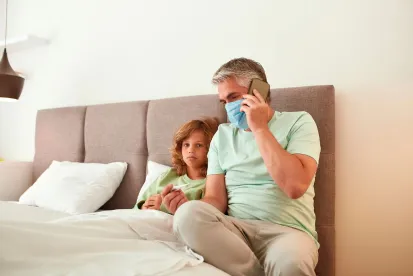On November 23, 2021, the New York City Council passed a bill (Introduction No. 2448-2021) that, if enacted into law, would allow employees who are parents paid time off to accompany their children to receive COVID-19 vaccinations and to care for their children due to side effects from vaccines. The bill, which would amend the New York City Earned Safe and Sick Time Act (ESSTA), was sent to the mayor for signature, but it has not yet been signed into law. If signed, the bill would become effective immediately and some of its provisions would be retroactive to November 2, 2021. Mayor-elect Adams has not directly commented on whether he supports the bill. Therefore, if Mayor de Blasio fails to sign the bill before his tenure ends, it is unclear whether mayor-elect Adams will do so once he takes office on January 1, 2022. The law would expire on December 31, 2022.
Purpose and Payment
Under the bill, employees with children under the age of 18 or with children “incapable of self-care because of a mental or physical disability” are eligible for up to four hours of paid time off, per injection, for a child to receive a COVID-19 vaccine or to care for a child who is recovering from side effects related to the vaccine. The bill also expands the definition of “parent” to include not only a “biological, foster, step- or adoptive parent, or a legal guardian,” but also individuals who stand in loco parentis.
The bill permits employees to utilize additional paid time off for each child. Leave provided under this bill would be in addition to any existing safe or sick leave an employee has already accrued. Additionally, any paid time off would have to be paid at the employee’s regular rate and paid on the next regular payday following the period in which the COVID-19 child vaccination leave was used. The regular rate of pay would not include any tip credit or tip allowances typically made.
Notice and Documentation
Under the bill, when an employee’s use of COVID-19 child vaccination time is foreseeable, employers may require the employee to provide up to seven days’ notice of the need for the time off. However, when the employee’s use of COVID-19 child vaccination time is not foreseeable, the employee need only provide notice of the need for paid time off “as soon as practicable.” Such a situation could possibly arise, for example, if the employee were to obtain a COVID-19 vaccination appointment for his or her child within 48 hours, or if the child experienced side effects the day after receiving a COVID-19 vaccine.
Employers may also require supporting documentation of an employee’s use of leave for a child’s COVID-19 vaccination or recovery from vaccine side effects. For example, within seven days of an employee’s use of such time, an employer would be permitted to request that the employee provide documentation that the child received the COVID-19 vaccine.
Miscellaneous Provisions
The bill prohibits employers from requiring employees to work additional hours to make up for any hours missed due to time taken as COVID-19 child vaccination leave. Similarly, employers may not ask employees to find replacement workers to cover shifts or hours when the employees intend to be absent for covered reasons. Unlike the general provisions of the ESSTA, the bill’s COVID-19 child vaccination leave requirements “cannot be waived” either through a collective bargaining agreement or other agreement that provides more generous safe and sick time or COVID-19 child vaccination leave.
Penalties
The bill provides that where an employer fails to compensate an employee for protected leave, the employer may be liable for a penalty of up to three times the wages that should have been paid or $250, whichever is greater. Where an employee is denied leave or the leave is improperly charged against the employee’s existing safe/sick leave, the employer may be liable for a civil penalty of $500.
Additional civil penalties payable to the city would include a fine of up to $500 for a first violation, up to $750 for each subsequent violation that occurs within two years of any previous violation, and up to $1,000 for succeeding violations.
Retroactive Application
Once signed, the bill will be deemed effective as of November 2, 2021, but no penalties will be enforced for 60 days after the date the bill becomes law. During this 60-day period, the New York City Department of Consumer and Worker Protection will be required to provide an employer with written notice of an alleged violation and 15 days to cure the violation before taking any enforcement action.
Employees who used leave time now covered by the bill since November 2, 2021, may be entitled to retroactive pay for the leave, and employers may comply with the retroactive application by paying the employees for such time on the next regular payday following the date the law takes effect.
Key Takeaways
Employers in New York City may wish to review the above requirements and begin to think about aligning their practices with the obligations articulated in the bill. Employers may also want to stay updated on all other COVID-19 requirements and mandates in New York State and New York City as they continue to evolve.





 />i
/>i

